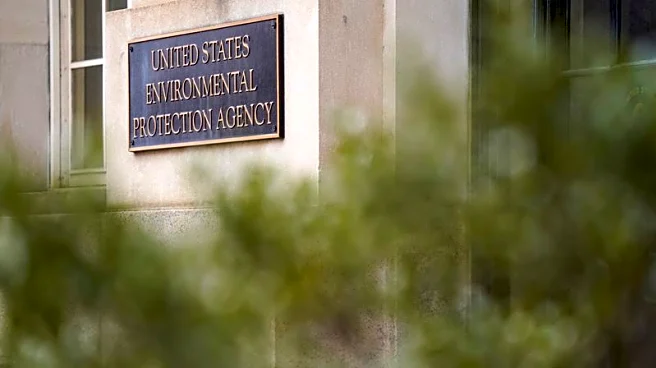By Jarrett Renshaw
(Reuters) -President Donald Trump's administration is expected to rule on a growing backlog of requests from small oil refiners seeking relief from U.S. biofuel laws as early as Friday,
but will delay a decision on whether larger refiners must compensate by boosting their own biofuel blending, according to two sources familiar with the planning.
The U.S. Environmental Protection Agency on Friday will announce decisions on some of the 195 pending small refinery exemption requests that date back as far as 2016, the sources said. The rulings will not be a sweeping win for small refiners, and will include some partial denials of waivers, according to one of the sources briefed on the decisions.
The administration is also expected to issue a supplemental rule as early as next week to seek public comment on whether larger refiners should make up for the exempted gallons in a process known as reallocation, the source said.
How the administration deals with exemption requests and the reallocation issues will have consequences for the oil and agricultural industries, and impact the price of commodities from gasoline and renewable diesel to soybeans and corn, along with the companies that produce them.
In the past, widespread exemptions without reallocation have sent renewable blending credit prices lower, denting prices for corn-based ethanol and soybean-based biofuel.
The EPA and White House did not respond to requests for comment.
The U.S. Renewable Fuel Standard requires refiners to blend biofuels like ethanol into the fuel pool or by the tradable credits, known as RINs, from refiners who do. Small refiners can petition the EPA to receive an exemption if they can show financial hardship.
The EPA has a mounting backlog of such requests going back years - the result of political indecision and legal wrangling across multiple administrations. Both the agriculture and the oil industries are keen for resolution.
Granting exemptions without forcing other refiners to make up the difference increases the supply of credits and puts downward pressure on their prices.
Farm and biofuel groups have lobbied the EPA to limit the number of exemptions and to force other refiners to make up for exempted gallons.
The oil industry is strongly opposed to reallocation, arguing it creates an uneven playing field and imposes burdensome regulatory costs.
The EPA said earlier this year that it would force larger refiners to make up for future exempted gallons, but was silent on how it would treat exempt gallons from the dozens of backlogged requests.
The supplemental rule will include various options in a bid to test how the market may respond, the sources said.
(Reporting By Jarrett Renshaw; Editing by Chizu Nomiyama and David Gregorio)









